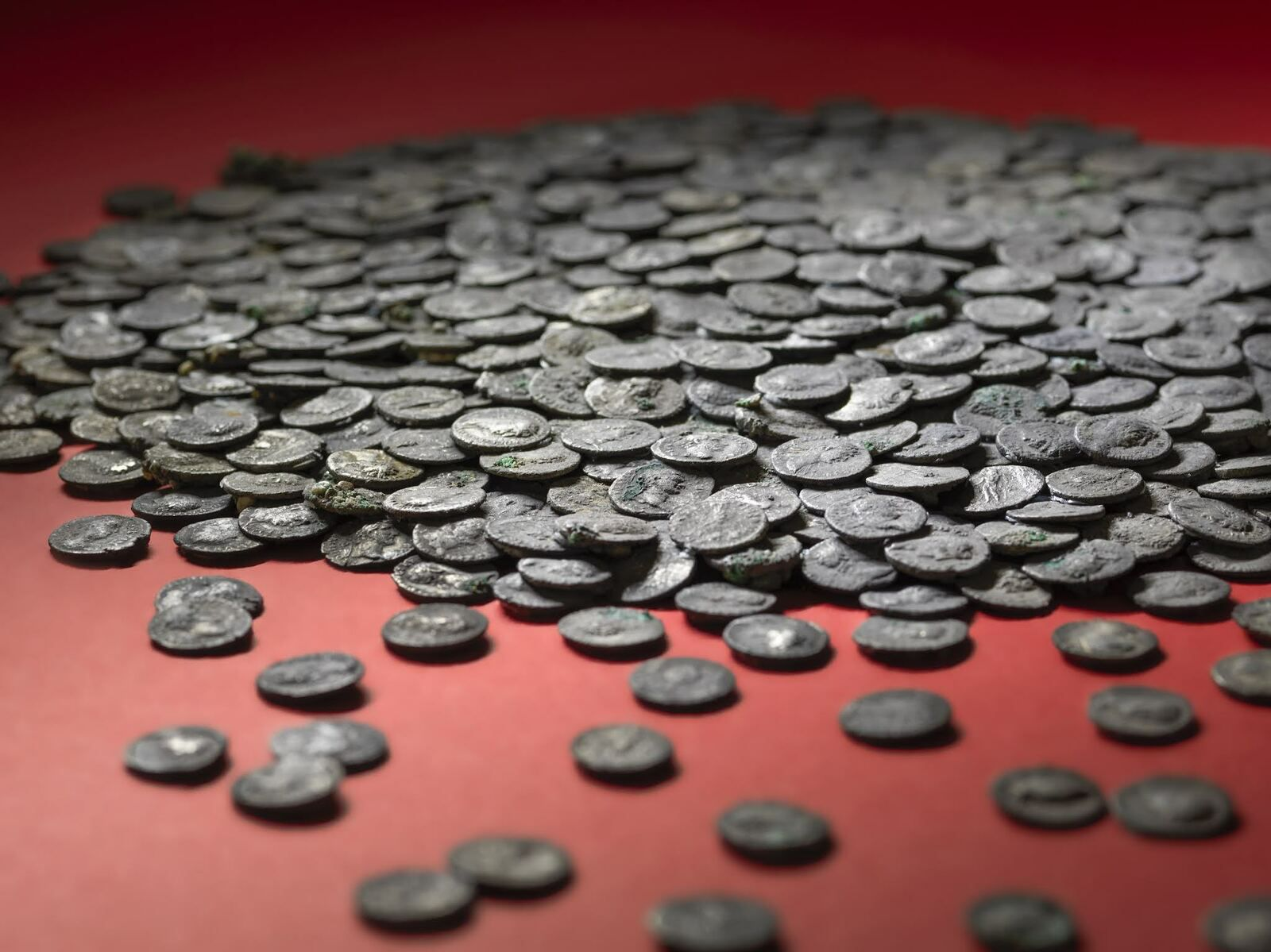Discovery of Norman-Era Silver Coin Hoard Becomes Britain’s Most Valuable Treasure

A remarkable hoard of silver coins from the Norman era, discovered five years ago in southwestern England, has been officially recognized as Britain’s most valuable treasure find, recently purchased for £4.3 million ($5.6 million) by a local heritage trust.
Discovery Details
The treasure, consisting of 2,584 silver pennies, was unearthed in the Chew Valley, approximately 11 miles south of Bristol, by a group of seven metal detectorists. As part of the sale, they will receive half of the proceeds, while the landowner where the coins were found will collect the remaining half.
Historical Context
According to the South West Heritage Trust, which acquired the hoard, the coins date back to 1066-1068, a pivotal period during the Norman Conquest, marking the last successful invasion of England. The hoard offers a glimpse into the turmoil of this era, as England faced a significant power shift.
The oldest coin in the collection features King Edward the Confessor, who died childless in January 1066, igniting a succession crisis among three claimants: Harold Godwinson, Earl of Wessex; Harald Hardrada, King of Norway; and William, Duke of Normandy.
Upon Edward’s death, he named Harold Godwinson as his successor. However, Harold II’s reign was short-lived as he faced challenges from both Harald and William, ultimately being defeated at the Battle of Hastings in October 1066.
Significance of the Hoard
The coin hoard reflects the tumultuous political landscape of the time, with about half of the coins featuring Harold II and the other half depicting William I (William the Conqueror).
Amal Khreisheh, curator of archaeology at the South West Heritage Trust, emphasized the importance of the hoard:
“It comes from a turning point in English history and encapsulates the change from Saxon to Norman rule.”
Khreisheh explained that the coins were likely buried around 1067-1068 on an estate belonging to Giso, the Bishop of Wells, during a time of rebellion against William in the South West. She noted:
“In 1068, the people of Exeter rebelled against William, and at that time, Harold’s sons returned from exile in Ireland, launching attacks around the River Avon and into Somerset and the Chew Valley.”
Rarity of the Find
The discovery of such ancient coins is exceedingly rare; this hoard contains twice as many coins from Harold II’s reign than have been found in previous discoveries.
Public Display
Following their acquisition, the coins will be displayed at the British Museum in London starting November 26, before returning to museums in southwestern England. This exhibition will allow the public to appreciate a tangible piece of English history that has remained buried for nearly a millennium.













